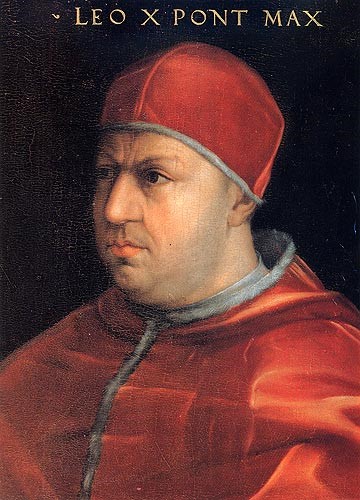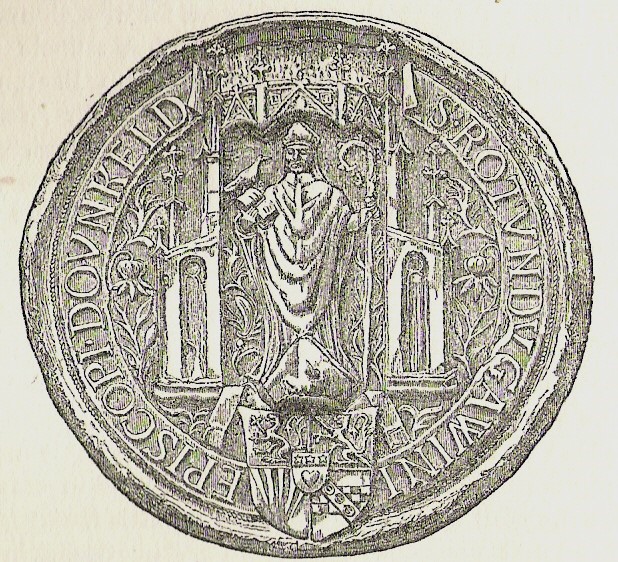James V: Religion and Reform
Chapter 2 : Ecclesiastical Nominations
In Scotland, as elsewhere, the senior ecclesiastical offices gave access to lands and relatively high incomes. Although the Pope was the ultimate decision maker, since he did not usually have any day to day knowledge of the offices in question (apart from the Bishoprics) he tended to accommodate requests from the King, or other ecclesiastics or nobles whom he wished to favour (or, sadly, but truly) paid the largest bribe. Whilst an office was vacant, or if the holder were a minor, the income would slip into the King’s pocket.
Earlier Scottish kings had negotiated an eight month period for them to nominate a new Bishop; James pursued his rights in the matter of benefices vigorously, and frequently wrote to Rome complaining if his wishes were not respected.

After the Battle of Flodden, when the Pope had been strongly in favour of the English position, Henry VIII petitioned Pope Leo X to rescind the Scots king’s right to recommend bishops and to insist that Henry be consulted over the filling of the many bishoprics left vacant after the battle. Unsurprisingly, the Scots were infuriated by this interference. The quarrel came to a head over the filling of the Archbishopric of St Andrew’s (vacant as Alexander Stewart had fallen at Flodden.)
The story is complex, but worth telling, as it is a microcosm of how the whole ecclesiastical system was run.
There were five contenders in the race.
Queen Margaret, supported by Henry VIII, nominated Gavin Douglas, uncle of her new husband, the Earl of Angus. Douglas immediately occupied the Archbishop’s castle. The Pope had his own candidate, his nephew, Cardinal Innocenzo Cibo. Albany (who had not yet been appointed Governor, and was still in France) was in favour of Andrew Forman, Bishop of Moray, Bishop of Bourges and Commendator of several abbeys. The fourth nomination, by the Council, was Bishop Elphinstone of Aberdeen. Fifthly, there was John Hepburn, who was already Prior and Dean of St Andrews and had begun collecting the income.
The Pope, Leo X, sent an envoy to take possession for Cibo but he was refused entry to the country by the Council, who then wrote, in King James’ name, protesting against this encroachment on the Crown’s privilege of nomination. The Pope reconfirmed James’ rights, and dropped Cibo, doing a deal with Forman who agreed to resign his bishopric of Bourges in Cibo’s favour. Forman was then appointed by Leo.

Hepburn besieged Douglas and drove him out of the castle. The Council wrote to the Pope, claiming that Forman was a rebel and should not be granted the Archbishopric. When Forman arrived in Scotland, he was prevented by the Council from leaving his Priory at Whithorn, but, after Albany’s installation as Governor, the Council was persuaded to accept him as Archbishop (Elphinstone considerately having died in the interim) and in the following year, he also became Papal Legate. Hepburn and Douglas compromised their differences by an exchange of cash, and the grant of one of the minor offices of Douglas to a Hepburn relative, whilst Douglas received the Bishopric of Dunkeld.
This unedifying spectacle was typical of Church governance and undermined respect for the Church. As elsewhere in Europe, the senior clergy also flagrantly broke their vows of celibacy, many having long term relationships and children, disgusting on-lookers with their blatant hypocrisy.
Queen Margaret’s secretary described the situation:
‘Every man taks up abbacyis that may .. est: thay tary not quhilk (until) benefices be vacant: thai tak tham or (before) thai fall…’
